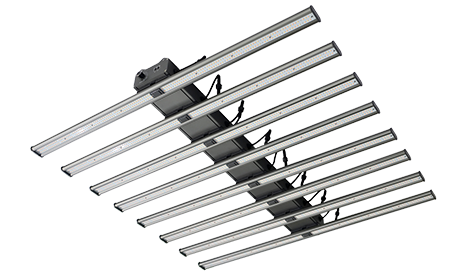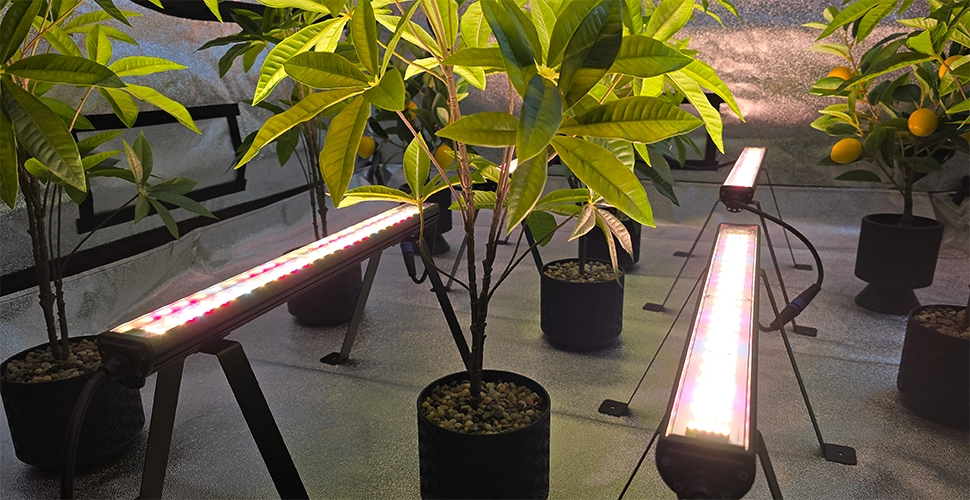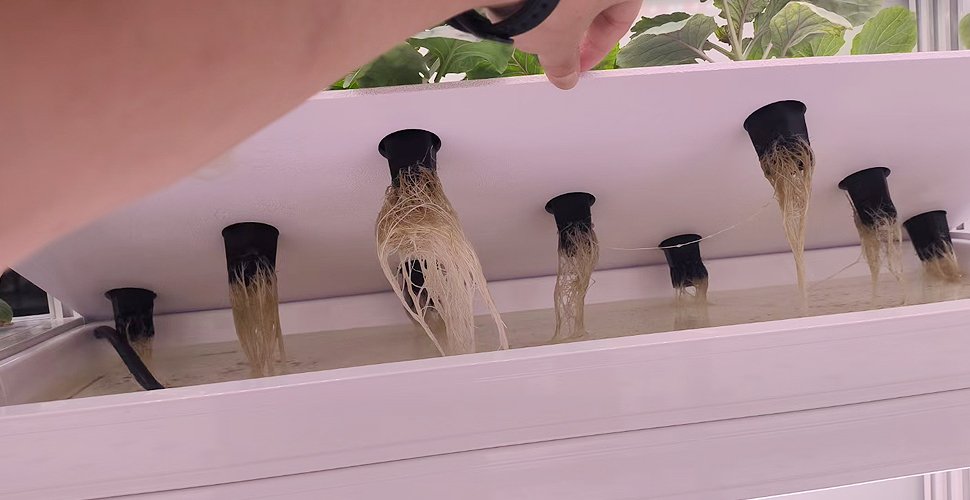Die Hydroponik ist eine landwirtschaftliche Technik, die keinen Boden verwendet und Pflanzen mit Nährstoffen und Wasser in einer Wasserlösung versorgt. Aufgrund seiner Vorteile, wie z. B. erhöhter Ausbeute, Wasserschutz und verringerter Anfälligkeit für Schädlinge und Krankheiten, wird zunehmend beachtet werden.
Die Hydrokroponik stellt jedoch auch einige Herausforderungen dar, wie die Notwendigkeit künstlicher Düngemittel und Nährstofflösungen, der den Prinzipien der organischen Landwirtschaft widersprüchlich ist. Ob Hydroponik eine nachhaltige landwirtschaftliche Methode ist, ist daher eine Frage, die es wert ist, erforscht zu haben.
Diese High-Tech-landwirtschaftliche Technik wirft eine schwierige Frage auf: Ist es ein Verteidiger der traditionellen organischen Landwirtschaft oder einer Geheimwaffe für intensive Landwirtschaft?
Dieser Artikel wird sich mit der Beziehung zwischen Hydroponik, organischer Landwirtschaft und intensiver Landwirtschaft befassen und Lesern ein umfassendes Verständnis bieten.
What's the Difference?
Hydrokultur: eine moderne landwirtschaftliche Technik
Die Hydroponik ist eine landwirtschaftliche Technik, die keinen Boden verwendet. In einem hydroponischen System wachsen Pflanzenwurzeln in einer nährstoffreichen Wasserlösung. Das System kann einfach oder komplex sein.
Es gibt Verschiedene Arten von Hydroponiksystemen, einschließlich DWC -Systeme, NFT -Systeme, Aeroponik, Tropfsysteme, Wicksysteme, vertikale Hydroponik und EBB & Flusssysteme
Hydroponik bietet mehrere Vorteile. Es kann den Ertrag erhöhen, Schädlinge und Krankheiten reduzieren und Wasserressourcen sparen. Darüber hinaus kann die Hydrokultur verwendet werden, um Pflanzen an Orten anzubauen, an denen eine traditionelle Landwirtschaft möglicherweise nicht möglich ist, wie z. B. städtische Umgebungen oder trockene Regionen.
Hydroponik und Bio -Landwirtschaft
Die organische Landwirtschaft ist ein landwirtschaftliches System, das natürliche Prinzipien befolgt und die Verwendung natürlicher Düngemittel und Schädlingsbekämpfungsmethoden zum Schutz der Gesundheit und der biologischen Vielfalt betont.
Hydroponics hat einige Ähnlichkeiten mit dem ökologischen Landbau. Beide können gesunde, pestizidfreie landwirtschaftliche Produkte produzieren. Die Hydroponik stimmt auch mit dem Ziel der organischen Landwirtschaft überein, indem die Verwendung von Wasserressourcen verringert wird.
Es gibt jedoch wichtige Unterschiede zwischen Hydrokultur und Bio -Landwirtschaft. Die Hydroponik verwendet keinen Boden und widerspricht dem organischen Landwirtschaftsprinzip der Betonung der Bodengesundheit.
Die Hydrokultur erfordert auch die Verwendung künstlicher Düngemittel und Nährstofflösungen, die sich vom organischen Landwirtschaftsprinzip der Verwendung natürlicher Dünger unterscheiden.
Hydroponik und intensive Landwirtschaft
Die intensive Landwirtschaft zielt auf hohe Erträge ab und beinhaltet häufig die ausführliche Verwendung chemischer Düngemittel, Pestizide und Wasserressourcen, wodurch Druck auf die Umwelt ausgeübt wird.
Die Hydrokultur kann als eine Form der intensiven Landwirtschaft angesehen werden. Hydroponische Systeme ermöglichen eine großflächige landwirtschaftliche Produktion, um die steigende Nachfrage zu befriedigen.
Die Hydroponik kann jedoch auch für die Produktion kleiner Produkte wie In-Home- oder Gemeinschaftsfarmen verwendet werden.
Ist Hydrokultur ökologischer Landbau oder Intensivlandwirtschaft?
Dies ist eine Frage ohne einfache Antwort. Die Positionierung der Hydrokultur hängt von seiner spezifischen Implementierung ab.
Hydroponik ist eine komplexe landwirtschaftliche Technologie, die Ähnlichkeiten mit organischer Landwirtschaft und intensiver Landwirtschaft aufweist. Es kann verwendet werden, um gesunde, pestizidfreie landwirtschaftliche Produkte zu produzieren und gleichzeitig den Wasserverbrauch zu reduzieren und sich an die Ziele der Bio-Landwirtschaft zu übereinstimmen.
Die Hydrokroponik verwendet jedoch keinen Boden, was dem organischen Landwirtschaftsprinzip widerspricht, das die Bodengesundheit betont.
Dan Beisinger, der Präsident der Northeast Organic Farming Association (NOFA) In den Vereinigten Staaten ist der Ansicht, dass die Hydrokultur eine nachhaltige landwirtschaftliche Methode sein kann, jedoch nur, wenn sie sich an die Grundsätze der organischen Landwirtschaft hält.
Er hebt hervor, dass hydroponische Systeme natürliche Düngemittel und biologische Schädlingsbekämpfungsmethoden anstelle von künstlichen Düngemitteln und chemischen Pestiziden verwenden können. Er betont auch, wie wichtig es ist, hydroponische Systeme für die Erhaltung von Wasserressourcen und die Schutz der Umwelt zu entwerfen.
Beissinger erklärt, “Die Hydrokultur kann eine nachhaltige Möglichkeit sein, gesunde, pestizidfreie landwirtschaftliche Produkte herzustellen. Wir müssen jedoch sicherstellen, dass hydroponische Systeme mit den Prinzipien der organischen Landwirtschaft übereinstimmen.”
Organische Puristen argumentieren, dass die Hydrokultur die Seele der organischen Landwirtschaft fehlt, da sie auf künstlichen Düngemitteln und Nährstofflösungen beruht, nicht natürliche Technologie, die nicht von Boden und von externen Inputs abhängt, einführt. Sie glauben, dass die Hydrokultur die Betonung der organischen Landwirtschaft auf Bodengesundheit und natürlichen Prinzipien erfüllt.
Hydroponische Innovatoren sehen Hydrokulture als “Fortgeschrittener organisch” da es gesunde, pestizidfreie landwirtschaftliche Produkte produzieren kann und gleichzeitig den Wasserverbrauch verringert. Sie glauben, dass die Hydrokultur an verschiedene Maßstäbe anpassen kann, von Heimatfarmen bis zu großen kommerziellen Operationen.
Unabhängig davon, ob die Hydrokultur unter konventionelle oder organische Landwirtschaft fällt, ist eine Entscheidung der Verbraucher. Verbraucher können hydroponische Produkte basierend auf ihren Werten und Vorlieben wählen.
Einige Wahrheiten müssen Sie wissen
In Bezug auf die Kritik, dass die Hydroponik unnatürlich und vollständig ein technologisches Unterfangen ist, möchte ich eine beiseite teilen.
Bio zu sein bedeutet nicht unbedingt frei von chemischen Substanzen. Wenn Sie jemanden behaupten hören “Keine Pestizide,” Es ist wichtig, diese Aussage mit einem Salzkorn zu nehmen. In Wirklichkeit können zertifizierte Bio -Lebensmittel in einigen Fällen sogar synthetische Pestizide verwenden.
Bio -Landwirtschaft zielt darauf ab, bestimmte Aspekte der modernen landwirtschaftlichen Technologie abzulenken. Insbesondere versucht es, die Verwendung synthetischer Düngemittel zu begrenzen und sich für Kompost und Gülle zu entscheiden.
Es bevorzugt auch die Verwendung von “natürlich” Pestizide, auch wenn weniger wirksam oder giftiger. Der organische Landbau beruht auf Techniken wie der Pflanzenrotation, um den Boden zu regulieren, und vermeidet die Verwendung genetisch veränderter Samen.
Einige genetisch veränderte Lebensmittel können nahrhafter sein als Bio -Lebensmittel.
In den Vereinigten Staaten ist das Landwirtschaftsministerium für die Überwachung der Zertifizierung von Bio -Lebensmitteln verantwortlich. Um eine organische Zertifizierung zu erhalten, müssen die Landwirte eine Reihe von Regeln einhalten, einschließlich
- Nur zugelassene Pestizide, es sei denn, es gibt keine zugelassenen Pestizide für einen bestimmten Schädling. In diesem Fall können sie synthetische Pestizide verwenden.
- Verwenden Sie nur bestimmte Arten von Düngemitteln wie Dünger.
- Nicht genetisch veränderte Samen verwenden.
- Nicht unter Verwendung der Strahlungsmutagenese, aber die chemische Mutagenese ist zulässig.
Jayes
Als Digital Marketing Manager bei AUXGROW vereint Jayes eine Leidenschaft für Hydrokultursysteme mit Fachwissen für LED-Wachstumslampen. Mit praktischer Erfahrung und einem tiefen Verständnis führt Jayes Sie durch die Welt des nachhaltigen Anbaus.






